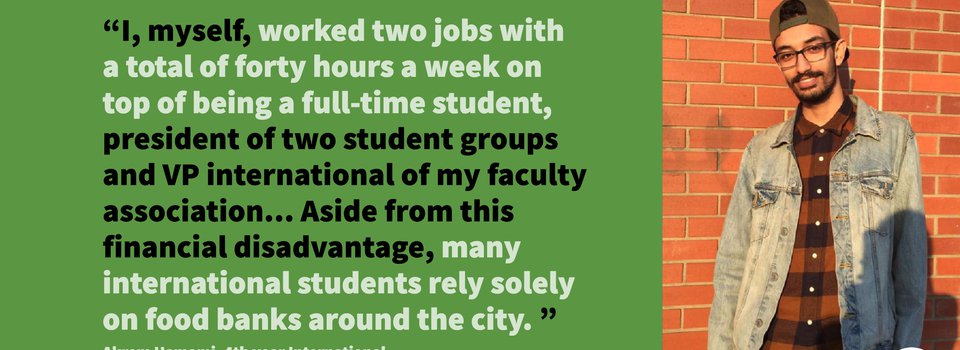Today, the Council of Alberta University Students (CAUS) published “International Student Affordability, Employment, and Housing in Alberta: Preventing Student Exploitation in Post-Secondary Education,” a policy paper exploring the experiences and difficulties international students face while attending post-secondary institutions in Alberta. The report recommends changes the provincial government can make to improve the lives of international students.
International undergraduates studying in Alberta are subject to high-cost tuition, precarious housing, and limited employment opportunities. The interwoven web of regulations from federal, provincial, and institutional levels leave little room for students to compensate for their changing situation. While the cost for international students increase, funding possibilities and employment are limited and do not keep pace.
“For many years, international student have told us the challenges they face attending post-secondary here in Alberta,” said Reed Larsen, Chair of CAUS and Vice President (External) of the University of Alberta Students’ Union. “Their tuition is volatile and their employment prospects are limited. There is a lot more that we can be doing to support these students, especially if we want the best and brightest to make Alberta their home.”
The simplest lever the Government of Alberta could pull would be to regulate international student tuition to limit the increases from one year to the next. Since 2010/11, international student tuition has increased more than 17 per cent, compared to 4.4 per cent for domestic students. While domestic students are currently protected by a tuition freeze, it does not apply to international students, leaving them to shoulder post-secondary institutions’ increasing costs.
“Often International students feel they are being used as cash cows,” added Conner Peta, Vice-Chair of CAUS and Vice President External of the University of Lethbridge Students’ Union. “When an institution increases tuition by 24 per cent from one year to the next, as NAIT did in 2017, it is exceptionally difficult for anybody to plan for their degree. Add on top, limited job availability and currency fluctuations, the challenge of planning becomes impossible.”


